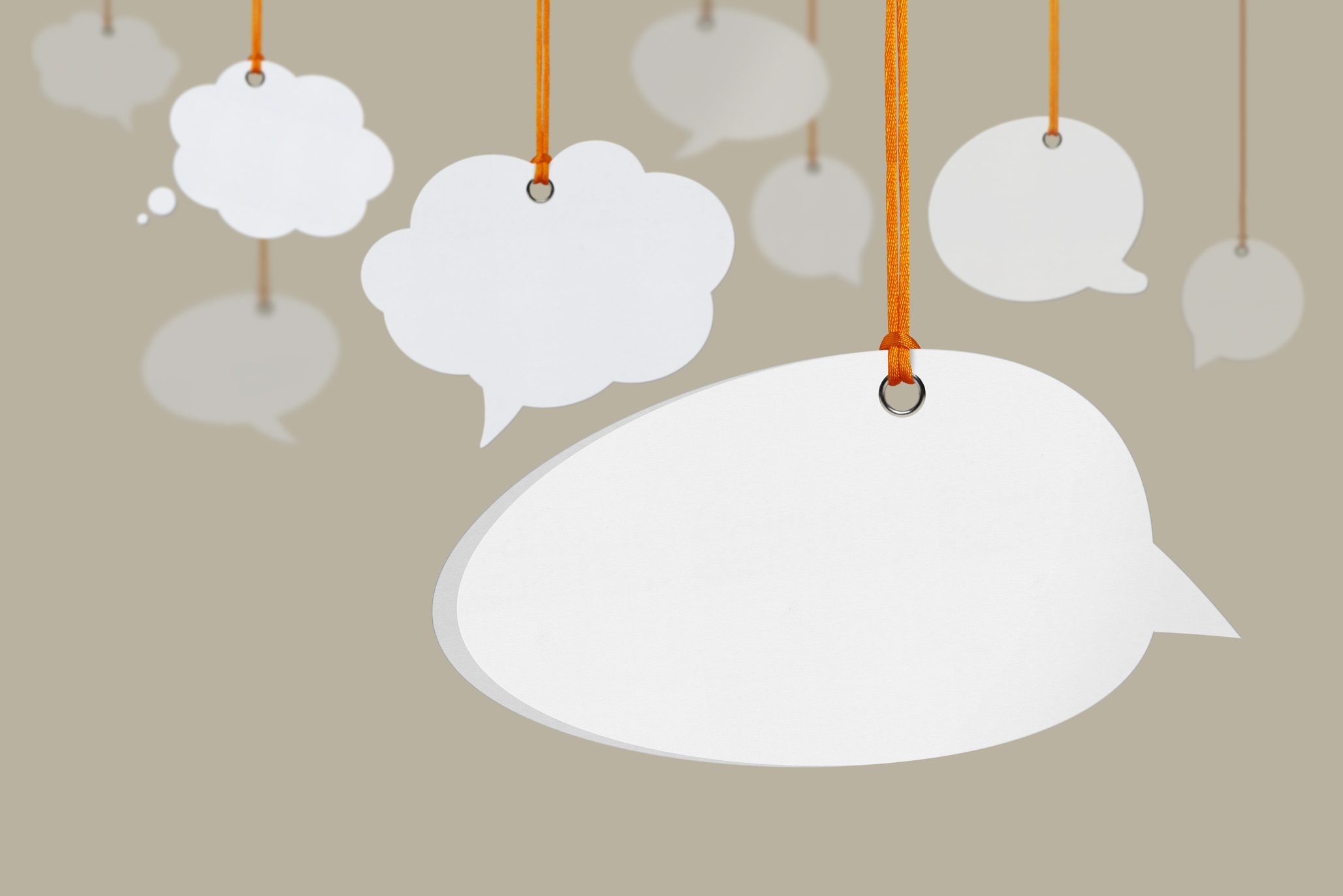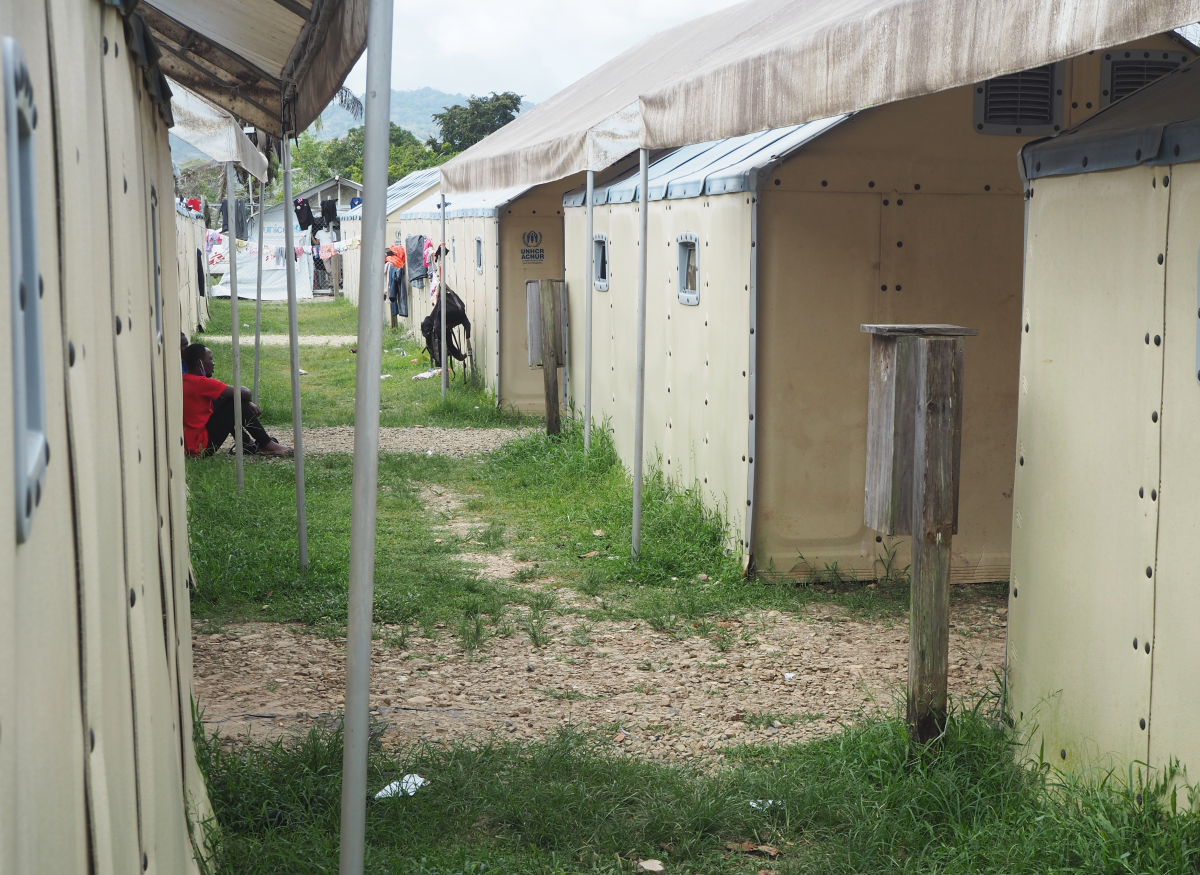In print, online, and on air, UConn faculty inform the public dialogue about major issues of the day. Through media coverage, the UConn community is able to share research, expertise, and opinions. UConn Today publishes the coverage each morning. And readers see it. People visited the site more than 1.3 million times in 2018. Below is a selection of news coverage in which faculty were part of the conversation this year. The full record of coverage.
What the New Climate Report Says About Where You Live
Popular Science
“We haven’t done anything about this yet, and the casualties are continuing to mount,” says Mark Urban, associate professor of ecology and evolutionary biology.
The Remote Tribe and American Missionary
National Geographic
The Sentinelese have earned the admiration of many who see in their resistance a determination to live as they wish on a tiny patch of green surrounded by a sea of trouble, writes Scott Wallace, associate professor of journalism.
Does Work/Life Balance Exist in the Gig Economy?
Self magazine
“Women are operating under two sets of expectations – one for work and one for parenthood – that cannot possibly both be met and are a setup for chronic stress and guilt,” says Sherry Pagoto, a clinical psychologist and director of the UConn Center for mHealth and Social Media.
Technology Shapes Insurance Companies’ Response to Wildfires
Associated Press
In some cases, the data can determine that the owner of one home is more likely to suffer damage than the owner of a neighboring home, said Peter Kochenburger of UConn Law. “Does it seem intrusive? It can be.”
Mexico wants Internet Access for All. Getting Everyone Online Could Reduce Poverty, Too.
Public Radio International
Ensuring that all Mexicans have access to the internet would give the country’s economy a boost, according to public policy research by Jack Barry, postdoctoral research associate in the Global Training and Development Institute at UConn.
New York’s Federal Tax Deduction Workaround Pays Off, May Not Last
Bloomberg
“The odds will have changed against playing this game – and not in favor of the taxpayer,” says Richard Pomp, professor of law.
Why Do Some People Feel Less Pain? They May Be Genetically More Resilient
The Daily Mail, UK
If we can better understand what makes individuals more or less sensitive to pain, then we are that much closer to reducing human suffering, writes Erin Young, assistant professor of nursing.
This is the World’s Oldest Intact Shipwreck
CNN
“We have a complete vessel with the mast still standing with the quarter rudders in place,” says researcher Kroum Batchvarov, UConn associate professor of anthropology. “It is [an] incredible find.”
Why is Synthetic Marijuana So Risky?
CNBC
People generally prefer natural marijuana to synthetic forms, but as long as natural marijuana remains illegal, highly desired, easily detected, and periodically unavailable, the desire to purchase synthetic forms will persist, says C. Michael White, professor of pharmacy.
Childhood Obesity: America’s ‘True National Crisis’ Measured State By State
CNN
“Until there are larger shifts in our food system to make it more affordable for families to buy healthier foods, this will continue to be a challenge,” says Marlene Schwartz, director of UConn’s Rudd Center for Food Policy & Obesity.
To Overcome Decades of Mistrust, a Workshop Aims to Train Indigenous Researchers to be Their Own Genome Experts
Science magazine
“To do this work you have to be willing to not see yourself as the authority, but rather as somebody who is going to listen to other authorities,” says Deborah Bolnick, associate professor of anthropology.
The Most Important Lessons from the Emotionally Charged Breastfeeding Debate
Quartz
“By sinking so much energy into getting moms to breastfeed, we miss something very important: that access to health care and the ability to take medical advice is critically important to a mother and her infant,” says UConn researcher Kerri Raissian, assistant professor of sociology.
The Straw Man in the New Round of the Reading Wars
Washington Post
“There is a wide divide between political debates about the teaching of reading and the actual instruction students receive in classrooms,” writes Rachel Gabriel, associate professor of education.
The Squid Biologist Connecting Schools and Scientists Worldwide
Nature
“People think of us as data machines, and that’s so far from the truth,” says graduate student Sarah McAnulty of UConn, who launched Skype a Scientist. “I thought that if we could connect people with scientists, we could change that perception.”
Why the Anti-Vaccination Movement is Wrong
BBC
“Google has brought us a world of information … but it has also brought us a world of disinformation,” says Michael Lynch, director of the Humanities Institute and professor of philosophy. “Despite the fact they are getting bad information, people can feel like they’re experts.”
Bye Bye Bugs? Scientists Fear Non-Pest Insects are Declining
Associated Press
Most scientists say lots of factors, not just one, caused the apparent decline in flying insects. “It’s death by a thousand cuts, and that’s really bad news,” says David Wagner, professor of ecology and evolutionary biology.
Fortnite Is a Huge Success – And a Sign of What’s to Come in Gaming
TIME magazine
“People who design [games] will say yes, in fact, the games are designed to be very addictive,” says David Greenfield of UConn Health.
This Tiny Songbird Rolls Its Head to Break Its Victim’s Neck
The Atlantic
“It’s like seeing a rabbit running around with long canines and a mane and acting like a lion,” says Margaret Rubega, professor of ecology and evolutionary biology. “I personally think they’re very badass.”
Archaeologists Dig Native American Fort Found in Connecticut
Associated Press
A 1600s Native American fort uncovered as part of a rail bridge replacement project is shining some light on a tribe’s first dealings with Europeans. “For me, it’s like a gold mine,” says Kevin McBride, associate professor of anthropology.
Flying Train that Travels at 400 Miles Per Hour Unlikely to Take Flight
Newsweek
Future methods of travel will likely improve upon existing technology rather than experimental designs that would likely take years of refinement before human use, says Norman Garrick, professor of civil and environmental engineering.
Republicans More Persuasive Than Scientists on Climate Change
Science
Republicans are even more persuasive than scientists when it comes to correcting misinformation about climate change. “Unfortunately, correcting misinformation is much harder than simply providing ‘facts’,” says Lyle Scruggs, professor of political science.
‘Starbucks classrooms,’ plus six other new approaches in education
Washington Post
“A trauma-informed approach is critical for schools,” says Sandra Chafouleas, professor of education, who says the new push helps school staffs identify and provide counseling for the estimated one-half to two-thirds of students who probably have experienced trauma.
Gig Workers: Your Paycheck Could be in Bitcoin Sooner Than You Think
CNBC
Gig economy workers are often in financially uncertain situations to begin with, and paychecks in bitcoin will make life more risky for them, says Niam Yaraghi, assistant professor of operations and systems management at the Stamford Campus, and co-author of a recent report on the sharing economy.
New Video Game Described as ‘Absurdly Sexist’
Newsweek
“The game also seems to fall into the sexist trope of assuming that women’s sexuality is passive,” says Amanda Denes, associate professor of communication, who has studied the “pick-up artist” community.
What makes Kim Jong Un tick?
CNBC
Although Trump will be the first sitting U.S. president to meet with a North Korean leader, he will be far from the first president to try to understand a foreign statesperson, writes Stephen Dyson, associate professor of political science.
Terrifying Fungus Hijacks Cicadas then Destroys Them
Newsweek
“It’s a fun story for us, not for the cicadas,” John Cooley, visiting assistant professor of ecology and evolutionary biology, who is researching precisely how the fungus is changing cicada behavior.
Did Human Sacrifice Help People Form Complex Societies?
The Atlantic
Biology professor Peter Turchin, who studies cultural evolution, says this mattered because the survival of historical societies often depended on their military prowess.
Did the U.S. ‘hack back’ at Russia? Here’s why this matters in cyberwarfare.
Washington Post
There are two reasons why states that choose to out themselves in cyberspace might do so quietly, communicating only with their target, writes Evan Perkoski, assistant professor of political science.
Exxon Sues Its Antagonists in a Fierce Climate-Change Lawsuit
Bloomberg
“People often try to use litigation to change the cultural conversation,” says Alexandra Lahav of UConn Law, pointing to litigation over guns and gay rights as examples. “Exxon is positioning itself as a victim rather than a perpetrator.”
Kim Jong-un’s Sister Turns On the Charm, Taking Pence’s Spotlight
New York Times
“The fact that Mr. and Mrs. Pence didn’t stand when the unified team came in was a new low in a bullying type of American diplomacy,” says Alexis Dudden, professor of history.
Descendants of Slaves Demand Restitution
Washington Post
Thomas Craemer, associate professor of public policy, helped the group calculate their request for restitution, based on the idea that forced labor created wealth for others than the enslaved people.
The ‘Bomb Cyclone’ Heading for the Eastern US – Is That Even a Thing?
The Guardian
“As long as people understand what bomb means in this context, it’s helpful for the speed of preparation for the storm,” says Kelly Lombardo, assistant professor of marine sciences. “Something like snowmageddon I have more mixed feelings about. Are you pushing it too far and causing panic?”
Newer gout drug poses risk to heart patients
Reuters
“The results are entirely unexpected and we don’t have a mechanistic explanation for them,” says chief author William White of UConn Health.
A New Therapy Has People With Dementia Sharing Baseball Memories
Smithsonian
Chatting with other fans, watching footage of old games and even playing wiffle ball can be therapeutic, says Michael Ego, professor of human development and family studies and Asian American Studies.



